Just a reminder to those who have Delaware corporations, your annual report and franchise tax payment are both due on March 1. At this point, you should have already received from Delaware your notification of annual report and franchise tax due, which is sent to a corporation’s registered agent in December or January of each year. Delaware requires these reports to be filed electronically.
As you will notice, there are two methods that you can use to calculate the amount of Delaware franchise tax due for your corporation (i.e., the “Authorized Shares Method” and the “Assumed Par Value Capital Method”), which result in vastly different amounts due. The default payment amount listed on your notification is set by Delaware using the Authorized Shares Method, which method will almost always result in a much high amount due for startups with limited assets. The minimum franchise tax is $75 and the maximum franchise tax is $180,000.
Franchise taxes are generally due in arrears for the prior calendar year. However, note that Delaware requires corporations owing $5,000 or more for the prior year to make estimated payments for the current (going-forward) year’s franchise tax with 40% due June 1st, 20% due by September 1st, 20% due by December 1st, and the remainder due March 1st.
Here are some examples showing how the different methods can dramatically impact the amount of Delaware franchise tax due:
Authorized Shares Method
The franchise tax rate for the Authorized Shares Method is as follows:
- 5,000 authorized shares or less (minimum tax) = $75
- 5,001 – 10,000 authorized shares = $150
- and for each additional 10,000 authorized shares or portion thereof = add $75
- maximum annual tax is $180,000
For example, under the Authorized Shares Method, a corporation with 15 million authorized shares would pay $112,575 (i.e., $150 plus $112,425 [$75 x 1,499]).
Assumed Par Value Capital Method
To use this method, you must give figures for all issued and outstanding shares and total gross assets in the spaces provided in your annual franchise tax report. Total gross assets shall be those “total assets” reported on the U.S. Form 1120, Schedule L (Federal Return) relative to the corporation’s fiscal year ending the calendar year of the report. The tax rate under this method is $350 per million or portion of a million. If the assumed par value capital is less than $1 million, the tax is calculated by dividing the assumed par value capital by $1 million then multiplying that result by $350.
Under this example, using the same corporate above having 15 million authorized shares of stock with a par value of $0.01, gross assets of $1.2 million and issued shares totaling 10 million, the Assumed Par Value Capital Method of calculation would result in a franchise tax due of only $700.
Here is a helpful “Franchise Tax Calculator” spreadsheet provided by Delaware to assist in estimating your franchise taxes. Note, in addition to the franchise tax, there is also a $50 filing fee for the annual report.
If you have yet to form your startup (or are considering reincorporation), see our prior post comparing incorporating in Washington versus Delaware. As you will note, the annual licensing fee for Washington corporations is a flat $69 (which is Washington’s equivalent of the Delaware franchise tax).

